Same Difference? Fantasy, SciFi, and Visions of Change in Richard Horton’s The Year’s Best Science Fiction & Fantasy 2010
Last month David Brin, amid much controversy, declared his definition of the difference between science fiction and fantasy: “The core thing about fantasy tales is that, after the adventure is done and the bad guys are defeated… the social order stays the same… Science fiction, in sharp contrast, considers the possibility of learning and change” (‘Difference’). Elsewhere Brin notes that he’s “known for deliberately provoking people” (‘Dune’), and he’s certainly provoked me – not necessarily to disagree with the value of the distinction he draws, but to take a closer look at his assertion and to try to apply it not so much to divide the genres as to unite them.
On the face of it, Brin’s definition seems to fly in the face of traditional ways of dividing the two genres. I’ll put that ‘traditional’ definition this way: Both genres include unrealistic elements in their plot, theme, characterization, or setting. However, science fiction relies on nominally rational scientific explanations for these unrealistic elements, while fantasy relies on magic or supernatural explanations, or doesn’t even bother explaining them. I’m sure I’ll get mired in my own controversy in claiming this minimal definition qualifies as ‘traditional’, but most non-tongue-in-cheek definitions I’ve found seem to be making something like this distinction. Here are a few examples to make this point:
John W. Campbell: “The basic nature of fantasy is ‘The only rule is, make up a new rule any time you need one!’ The basic rule of science fiction is ‘Set up a basic proposition–then develop its consistent, logical consequences.’” (Introduction, Analog 6, Garden City, New York, 1966)
Kingsley Amis: “Science Fiction is that class of prose narrative treating of a situation that could not arise in the world we know, but which is hypothesized on the basis of some innovation in science or technology, or pseudo-technology, whether human or extra-terresial in origin.” ( New Maps Of Hell, London, 1960)
Miriam Allen deFord: “Science fiction deals with improbable possibilities, fantasy with plausible impossibilities” (“Elsewhere, Elsewhen, Elsehow,” 1971). [Compare this to Twilight Zone creator Rod Serling’s widely-quoted “science fiction makes the implausible possible… fantasy makes the impossible plausible.”]
Robert A. Heinlein: “Science Fiction is speculative fiction in which the author takes as his first postulate the real world as we know it, including all established facts and natural laws. The result can be extremely fantastic in content, but it is not fantasy; it is legitimate–and often very tightly reasoned–speculation about the possibilities of the real world.” (“Ray Guns and Spaceships,” in Expanded Universe, Ace, 1981)
What’s interesting to me is if fantasy and scifi are, as Brin suggests, both so very different in outlook, why, then, is there so much overlap between the fans of the two genres? Indeed, there is so much overlap that most bookstores for marketing reasons shelve them together under F&SF. Brin’s definition suggests that the two genres have radically different ideological perspectives, which would seem to make the common fan base difficult to explain. The traditional definition of the difference provides an easy answer: Both genres have a lack of realism in common. Fans of both genres are attracted to both because they interested in stories of unreality, for whatever reason that may be –escapism, exercise of the imagination, or a desire to think outside the real-world box.
Another explanation for the common fan base is that the two genres really aren’t so distinct after all. Charles Tan (interviewed this issue), for instance, says “I prefer the term ‘speculative fiction’, because I don’t need to delineate in-between.” He then mentions Arthur C. Clarke’s ‘Third Law’ (which also gets a nod in the new Thor movie) that “Any sufficiently advanced technology is indistinguishable from magic.” This means that either scifi is a subgenre of fantasy, or all fantasy is really scifi awaiting a better explanation. Many scifi writers deliberately play with this distinction (or lack thereof) by inventing scientific explanations for traditionally fantastic tropes such as magic and dragons. Examples include Christopher Stasheff’s Warlock series, Anne McCafferey’s Pern series, and even David Brin’s own The Practice Effect. Was Star Wars technically a fantasy before George Lucas introduced ‘mitochlorians’ to explain the Force? (Why, George, why?)
The traditional definition of the genre differences thus doesn’t seem to be one which ‘carves nature at its joints,’ as it were. It does, however, provide practical categories for authors, publishers, and fans to use, so the difference does makes a difference. A much better difference than these two:
Frederik Pohl: “Science fiction is what science fiction fans mean when they point to something and say, ‘That’s science fiction!’”
Norman Spinrad: “There is only one definition of science fiction that seems to make pragmatic sense: ‘Science fiction is anything published as science fiction’.”
Brin’s definition of the difference, however, does get at something important. Brin derides the feudalistic oligarchy which underlies nearly all fantasy worlds, with Tolkien’s Lord of the Rings being his prime example: “Aragorn may be a better king than Sauron would have been. Hurray. Fine. But he’s still a freaking king. And the palantir on his desk that lets him see faraway places and converse with viceroys across the realm is still reserved for the super elite.” (‘Difference’) But Brin also categorizes Frank Herbert’s Dune as fantasy, for the feudal Atreides are in Brin’s view no different or better, really, than the Harkonnens they replace. (‘Dune’) He continues, “The implicit assumption in most fantasy is that the form of governance that ruled most human societies since the discovery of grain must always govern us.” (‘Difference’) In Brin’s view true scifi resists that assumption, it defies the status quo stasis and imagines new forms of governance.
To call this the difference between fantasy and scifi seems to confuse an ‘is’ with an ‘ought.’ The tone of his essay suggests that we shouldn’t be proud of fantasy’s outdated ideals; it is scifi (by his definition) which authors should be writing instead. And this may even be true. But it’s confusing and even absurd to call the approved radical propaganda by the name ‘scifi’ and to call the archaic dogma ‘fantasy.’ Those terms are already in use to mean something quite different (even if we don’t know quite what they mean). We need different terms for Brin’s distinction.
I’d suggest using the terms ‘conservative’ and ‘progressive’ for this distinction, but that would be just as confusing since those terms are already in use and are politically loaded. But ‘feudalistic oligarchical fiction’ and ‘technoscientific democratical fiction’ are too much of a mouthful, and don’t quite get at the distinction either. ‘Hidebound’ and ‘Visionary’? Nope, that’s not quite right, either. But it may be getting close.
I picked up Gardner Dozois’s The Year’s Best Science Fiction 27th Annual Collection from last year (which I reviewed in RSF#10) , and – since I needed to compare fantasy to scifi – a recent collection of both genres, Rich Horton’s The Year’s Best Science Fiction & Fantasy 2010, to see if I could notice the difference Brin champions. Horton has been editing separate ‘Best’ anthologies for both genres since 2006, but in the last two years his anthology has combined both science fiction and fantasy. His 2010 science fiction selections overlap somewhat with Dozois, but what I was interested in to evaluate Brin’s distinction was the fantasy.
Brin’s classification definitely does not split up the genres along exactly the same divide as the traditional definitions. Some stories which are clearly traditional scifi can be set in stagnant feudal oligarchies (John C. Wright’s “Twilight of the Gods” and Paul Cornell’s “One of Our Bastards is Missing,” both found in Dozois ), and some stories which are clearly traditional fantasy can provide visions of an improved future society.
Granted, several of the stories in Horton support Brin’s point. Theodora Goss’s evocative “Child-Empress of Mars” pays homage to the Martian Tales of Edgar Rice Burroughs (see my column in RSF#1, also see another story in Horton which pays a hilariously tongue-in-cheek homage to Barsoom: R. Garcia y Roberson’s “Wife-Stealing Time.”) Goss depicts a sword-and-planet feudal monarchy which has received an Earthman reminiscent of John Carter. Goss turns the traditional pulp heroic story on its head in an ironic way, but the empire does continue, with a new Empress on the way, in just the manner which Brin despises. Alex Irvine’s “Dragon’s Teeth” also is mired in medieval politics, with the hero loyally risking his life for the queen.
But there are a couple of Horton’s fantasy selections which show that not all fantasy is about maintaining the Old World Order: Jo Walton’s “Three Twilight Tales” and Robert Kelly’s “The Logic of the World.” Walton weaves three dreamlike fairy tales together, and one of the protagonists (who is, admittedly, a king, but not for long) will “step into a new story, a story that’s never been before.” This new story hints at a large change in the status quo. Robert Kelly’s story similarly appears at first to be the quintessential medieval fantasy, with a knight named Parsival seeking to slay a dragon. But the dragon turns out not to play along with the traditional role, and the knight is profoundly changed by his encounter with it, with a new sense of his relation to the world and his society.
Both of these are innovative stories, which, like the iconoclastic scifi Brin supports, suggest a vision of change. Perhaps because of their fantasy conventions these stories cannot illustrate such revolution with the energy of John Kessel’s space-operatic “Events Preceding the Helvetican Renaissance” (found in both Horton and Dozois), but the vision is there, the idea that something new is possible and should be striven for.
So to avoid confusion, let me coin a new term for these kinds of stories – be they scifi or fantasy or something in between like Lucius Shepard’s “Sylgarmo’s Proclamation” (in Horton). Brin can keep calling them ‘scifi’ if he wants, but I think that will only muddle the issue, since most other people mean something else by it. Combining the notions of innovation (in both technology, science, and government) with activism (the sense that change is possible, but must be worked towards), I’ll call them ‘Innovactive.’ And Brin is right to champion them, by any other name.
So step into a new, innovactive, story with me.
Works Cited:
Brin, David. “The Difference between Science Fiction and Fantasy.” In Contrary Brin (April 8, 2011). A couple of days afterwards (April 10) it was reposted on the Institute for Ethics and Emerging Technologies website.
Brin, David. “Dune, the Movie: Good vs. Evil”.You Tube video found on David Brin’s Official Website attributed to cab01. (If it’s no longer there, search for it on YouTube.)
Dozois, Gardner, ed. The Year’s Best Science Fiction: Twenty-Seventh Annual Collection. New York, St. Martin’s, 2010.
Horton, Rich, ed. The Year’s Best Science Fiction & Fantasy: 2010 Edition. Prime Books, 2010.
Henry Cribbs somehow managed to sneak his science-fiction poem about Schrödinger’s cat into the literary art journal Lake Effect, and has also published book reviews for Philosophical Psychology, Chicago Literary Review, and Black Warrior Review. He taught philosophy and creative writing at the University of South Carolina for several years, and now forces his high school English students to read Ray Bradbury. He currently serves on the editorial board for Nimrod International Journal of Prose and Poetry.

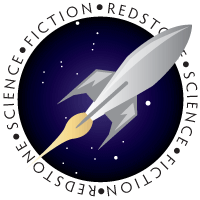






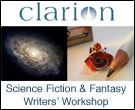




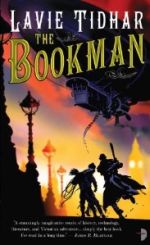
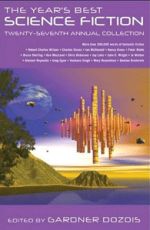


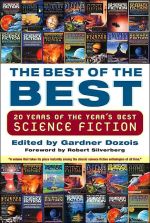
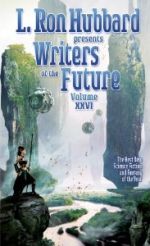

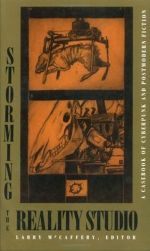



3 comments
[…] Same Difference? Fantasy, SciFi, and Visions of Change by Henry […]
Awesome response to Brin’s article. His article actually made me think about ways to bring the language of one into the other. Things get very interesting when SF characters use the language of myth, while Fantasy becomes even more fantastic when one uses the logic steps of SF to push the story into new directions and question what makes one human.
I think Brin’s theory holds true quite well when looking at historical speculative fiction. So for instance alternate history, which is usually seen as a form of SF, by it’s nature involves a change to the status quo, i.e. history is changed. Whereas historical fantasy, whether a sub genre of fantasy or historical fiction, adds magic to a historical reality but does not tend to change historical outcomes.